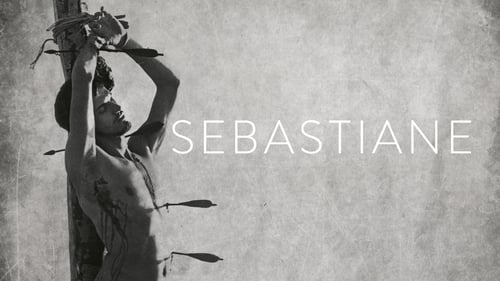2hotFeature
one of my absolute favorites!
Mandeep Tyson
The acting in this movie is really good.
Darin
One of the film's great tricks is that, for a time, you think it will go down a rabbit hole of unrealistic glorification.
Logan
By the time the dramatic fireworks start popping off, each one feels earned.
ekeby
Despite not having grown up with Catholic iconography, as a gay man I knew that the paintings of St. Sebastian's martyrdom were considered by some to have homo erotic appeal. I have had to consult a saint's dictionary to find out exactly who the saint was, what he did, and why he's revered. The facts have little relevance to this film.Jarman's Sebastiane seems to be an imagined back story of how homo eroticism might have come to be associated with the saint's imagery. The story's framework gives Jarman an opportunity to incorporate big themes into the film: persecution, alpha males, authority, love, unrequited love, devotion, loyalty, idealism, morality, and group dynamics. Religion, not so much. These themes are not editorialized, necessarily, other than being woven into the daily lives of a small group of Roman soldiers living in an isolated outpost.While Sebastiane's Christianity is the reason he is persecuted by his comrades, Sebastiane does not evangelize. His Christianity, in the few instances he articulates it, seems to be a jumble of spiritual and erotic love for the Christian god and the god Apollo. Sebastiane's ideals also seem to be somewhat muddled. After a lengthy group training session with mock sword fights, he throws down his weapon and declares that Christians don't fight. His participation in the practice fight and his sudden refusal to continue don't make any logical sense; perhaps the scene is meant to be a metaphor for a gay man refusing to act straight any longer.The whole movie is, of course, somewhat of a rumination about what it means to be a gay man and outside of the mainstream of male sexuality. It acknowledges that being male includes same sex activity, but it also makes it clear that exclusive same sex activity, especially if there is sentiment attached, is considered aberrant. In other words it's okay for straight males to screw each other, but it's not okay for them to love each other.The film is often cited as an exercise in self-indulgent eroticism, and I'd agree it leans in that direction. The naked men are not hard to look at, especially the extraordinarily sexy Ken Hicks. There is a long slow-motion scene of him frolicking with his lover that would not be out of place as an introductory sequence in any '70s gay porn movie. I can understand intellectually why it deserves to be included, but I think the film would have been stronger--and taken more seriously--if those kinds of scenes had been minimized.I found the end of the film somewhat unsatisfactory. Sebastiane's martyrdom looks more like target practice than an execution. I think that Jarman's having each soldier in turn shoot Sebastiane with an arrow was meant to symbolize something, but whatever it was eluded me. By stretching it out, the scene lost its power. I suppose it was done that way to emphasize the origin of the familiar homo erotic imagery of the saint, but it didn't feel right to me.This film is required viewing for any student of gay cinema.
momorguci
Atmospheric, lyrical, experimental, and with a distinctly queer gaze, Sebastiane is a must for those interested in gay cinema. The film explores the myth behind St. Sebastian whose paintings and imagery have always been linked to queerness as he was one of the only male figures to be sexualized, a rare occurrence, with his naked arrowed chest. Sebastiane, a Christian, is exiled to a remote sort of military camp. The emphasis as has been said is clearly on the visual.The air permeates and oozes of sexual desire and longing. Soldiers are half naked throughout, often wrestling, joking, and talking a lot about sex. Sebastiane, stands apart because of his Christian beliefs, and the film explores the sado masochism inherent in martyrdom, the pleasure the pain brings, further strengthening his convictions. Sebastiane believes strongly in a higher power and the film itself seems em bused with a spirituality in its slow contemplative shots of nature. The film also deals heavily with unrequited love, both Justin and Severes have an eye for Sebastiane but express it in very different ways. There is also a gay couple among the soldiers whose love is tender and natural. Jarman has a distinct "voice", his films and imagery feel deeply personal and are generally in my opinion fascinating to watch.
gabriela-12
I just found in a Spanish DVD shop this movie. I had seen Edward II and found it odd, but yet interesting. Sebastiane was made in Latin, because Jarman thought strange to be watching a movie about Romans that spoke English. I think it was wise and seductive. The story runs in a smooth way, as if someone with a camera (perhaps thanks to a Time machine,)was hiding to catch those moments. I can't find the scandalous issue here. I find quite natural that between a bunch of men exiled from the city of Rome, violence and desire could rise. Love (and love resistance, and violence and non violence. These are the arguments. I think Jarman made a beautiful movie, sensible, of religious meaning in the case of Sebastiane, and of love and frustration in the case of the Captain. The film reminds me absolutely Golding's "Lord of the flies", as the situation is similar. The film probably lacks passion or interior force, but this was only Jarman's first movie. I recommend this movie as I would Pasolini's "Edipo": I think both movies or perhaps the two director's sensibilities are in touch here.
Stephan-Edwards
"Sebastiane" is fairly unique in film history, at least prior to Gibson's "The Passion," for its exclusive (and historically correct) use of Latin. That said, it was also a ground-breaker for its sensitive and frank depiction of homosexual desire in a film intended for the non-pornographic market. Potential viewers should be aware that the same-sex sexual content is quite explicit, and that the film would have an NC-17 rating if released in the US today. The film was shot entirely on location in (if I recall correctly) North Africa, and the arid, nearly tree-less landscape lends itself to the storyline quite well. Costuming is minimal, limited to loincloths, helmets, greaves, and gauntlets. The acting is somewhat stiff, probably the result of speaking a "dead" language. But without question, if you are a fan of Derek Jarman and his work, this is a film that should not be missed, if you can find it. I have never seen it on any seller's lists in the US. My own tape of it was obtained in Europe.






